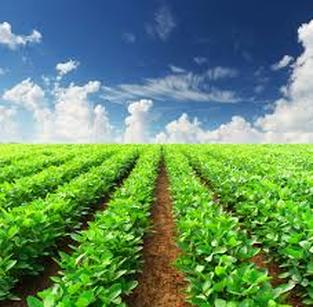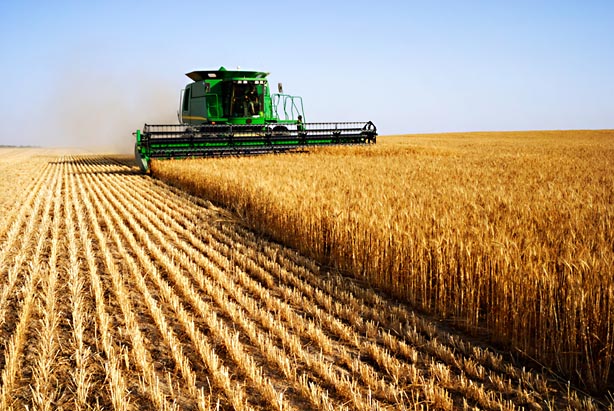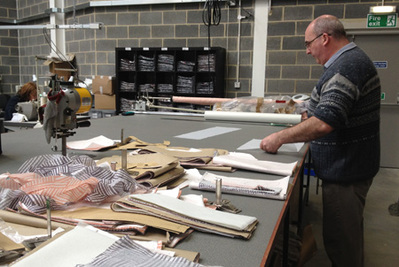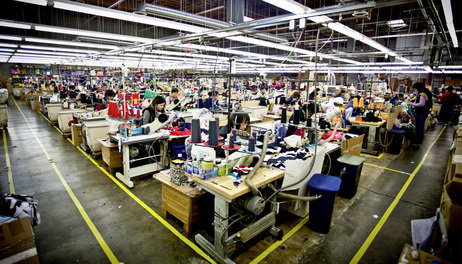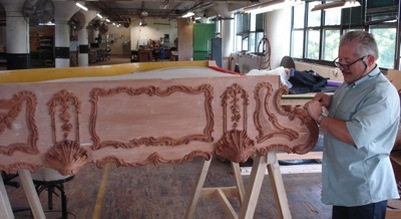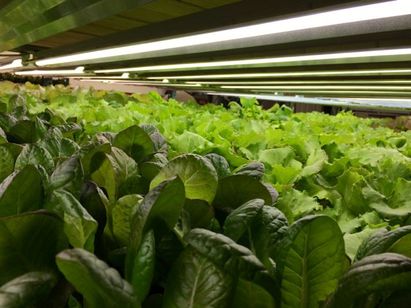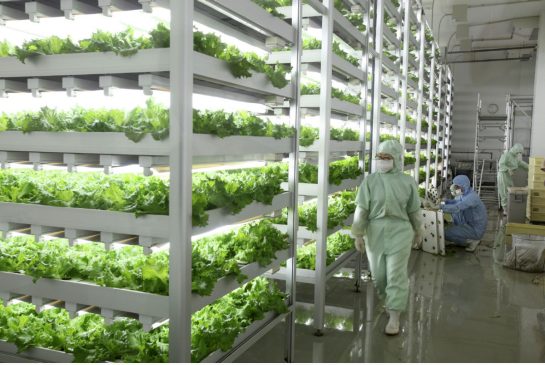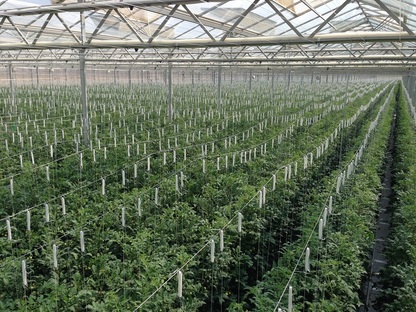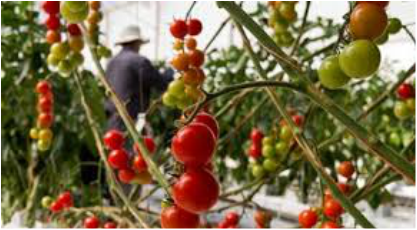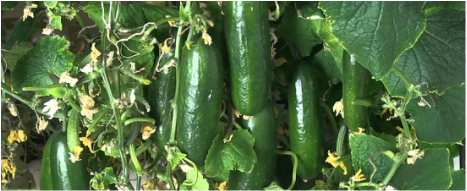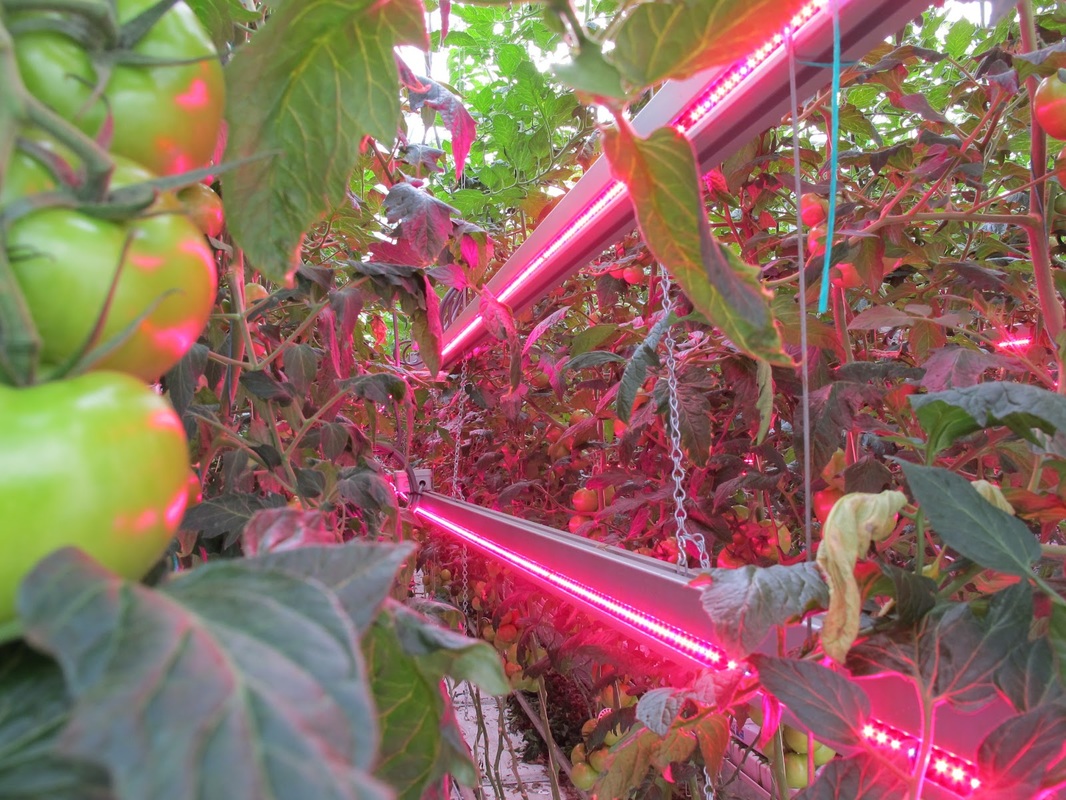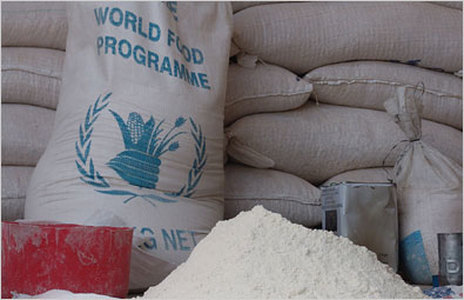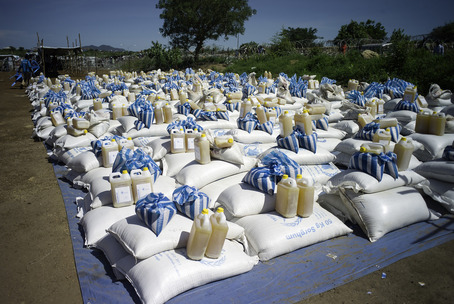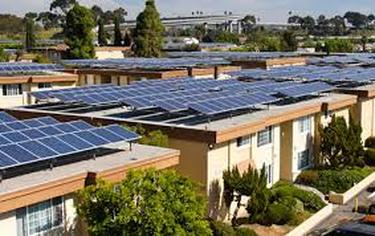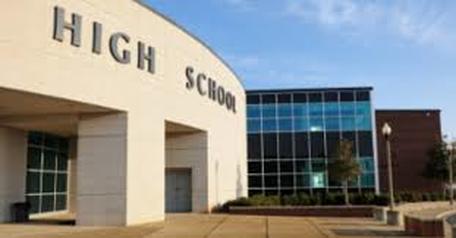|
|
Report By: URGC Ambassador Dr. Leonie Constantinou
CREATING A STABLE SUSTAINABLE FOUNDATION FOR SYRIAN REFUGEES TO RESETTLE IN THEIR HOMELAND
Syria was a country in the middle range of economic growth and prosperity. Oil and agriculture were the backbone of Syrian exports for many years..
Agriculture is one of the cornerstones of the Syrian economy. It provided nearly a quarter of the national income while employing almost a third of workers across the country. The government currently sees the agricultural sector as one of vital importance for achieving food self-sufficiency and more vitally to simply sustain life of the Syrian people under present conditions.
CREATING A STABLE SUSTAINABLE FOUNDATION FOR SYRIAN REFUGEES TO RESETTLE IN THEIR HOMELAND
Syria was a country in the middle range of economic growth and prosperity. Oil and agriculture were the backbone of Syrian exports for many years..
Agriculture is one of the cornerstones of the Syrian economy. It provided nearly a quarter of the national income while employing almost a third of workers across the country. The government currently sees the agricultural sector as one of vital importance for achieving food self-sufficiency and more vitally to simply sustain life of the Syrian people under present conditions.
Another major cornerstone of Syrian economy falls into the industrial sector. A large percentage of imports have been raw materials and equipment for the agricultural and industrial sector. Approximately a third of the gross domestic product and labour force of Syria was employed throughout the industrial sector. It had benefited in recent decades from opening of regulations allowing private financing and investment. For many years much of this sector was under state control.
One of the major points of the Syrian industry comes in traditional means. Syrian craftsmen produced and still produces some of the finest quality furniture and clothing in the world. Dried fruit packing was also very lucrative. Regardless of present economic crisis, Syria is a country long involved in trade and commerce. Its advantageous location on major East-West trade routes have ensured the Syrian people have developed a shrewd understanding of business which still exist today, waiting to be rejuvenated.
One of the major points of the Syrian industry comes in traditional means. Syrian craftsmen produced and still produces some of the finest quality furniture and clothing in the world. Dried fruit packing was also very lucrative. Regardless of present economic crisis, Syria is a country long involved in trade and commerce. Its advantageous location on major East-West trade routes have ensured the Syrian people have developed a shrewd understanding of business which still exist today, waiting to be rejuvenated.
Syrian people are highly educated and skilled, with the aptitude and strength to pick up and start again and provide for themselves, but without the financial support of UN and International Community this would be very difficult to instigate.
Lets take one of Syria’s largest industrial cities ‘Adra’, located immediately east of the residential town. The industrial zone's area is around 7,000 hectares, with half being designated for services and the other half for industries. As from 2008 there were 90 operating factories whilst a further 1,125 factories were under construction. By 2010, Adra's industrial city contained the largest number of active factories under construction in Syria, with a total of 1,952, a thriving industrial city which was the life line for employment and industry of Syria. The magnitude of Adra Industrial city, is a clear testament to the educated aptitude, professionalism and business mindedness of the Syrian people which awaits the opportunity to be rejuvenated.
With almost 70% of the population unemployed and growing numbers of refugees/displaced people; and let us add to Syria’s reliance upon foreign imports to meet its industrial, commodities and food supplies; we must question why Adra has not been commercially reactivated to meet the home needs of the Syrian people and economy? It is the most logical and obvious immediate steps to have taken without delay, yet funding to help rejuvenate Adra is still to be realized, which comes at a high cost and ongoing suffering of the Syrian people.
With so many factories inactive, it would be economically sustainable for Government, UN & International Community to financially support the rejuvenation of Adra. Let us take a simple yet very viable sustainable as well as crucial example of what can be applied within Adra using its existing facilities that will help rejuvenate Adra as well as create immediate employment and help resolve a major part of the food crisis issues –
1. With so many inactive factories, hydroponic projects can be applied, from which a few factories can produce enough fresh produce to supply the Syrian population with fresh food produce on a daily basis e.g.
a. Using only 2% of water required from outdoor land farming
b. 100% free from crop damage
c. 70% less fertilizer required than that of outdoor farming
d. Crops grow 70% faster than outdoor land faming
e. Example of production - combining 40,000m2 of factory space can produce a up to 182 million lettuces per year
f. Hydroponics can include to grow lettuce, cucumbers, tomatoes, cabbage, beans/pulses, okra, aubergine, parsley, coriander, onions, herbs courgettes, marrows, pumpkins and other fresh produce.
URGC Ref: Vassili Group Ltd http://www.vassili-group.com/soil-free-farming.html & http://www.vassili-group.com/led-agriculture.html Consultants to Go Green Syria Organization (Not For Profit-Non Governmental) other sustainable socioeconomic development examples http://www.vassili-group.com/solar---cow--dairy-farm.html & http://www.vassili-group.com/solar---chicken--egg-farm.html
Lets take one of Syria’s largest industrial cities ‘Adra’, located immediately east of the residential town. The industrial zone's area is around 7,000 hectares, with half being designated for services and the other half for industries. As from 2008 there were 90 operating factories whilst a further 1,125 factories were under construction. By 2010, Adra's industrial city contained the largest number of active factories under construction in Syria, with a total of 1,952, a thriving industrial city which was the life line for employment and industry of Syria. The magnitude of Adra Industrial city, is a clear testament to the educated aptitude, professionalism and business mindedness of the Syrian people which awaits the opportunity to be rejuvenated.
With almost 70% of the population unemployed and growing numbers of refugees/displaced people; and let us add to Syria’s reliance upon foreign imports to meet its industrial, commodities and food supplies; we must question why Adra has not been commercially reactivated to meet the home needs of the Syrian people and economy? It is the most logical and obvious immediate steps to have taken without delay, yet funding to help rejuvenate Adra is still to be realized, which comes at a high cost and ongoing suffering of the Syrian people.
With so many factories inactive, it would be economically sustainable for Government, UN & International Community to financially support the rejuvenation of Adra. Let us take a simple yet very viable sustainable as well as crucial example of what can be applied within Adra using its existing facilities that will help rejuvenate Adra as well as create immediate employment and help resolve a major part of the food crisis issues –
1. With so many inactive factories, hydroponic projects can be applied, from which a few factories can produce enough fresh produce to supply the Syrian population with fresh food produce on a daily basis e.g.
a. Using only 2% of water required from outdoor land farming
b. 100% free from crop damage
c. 70% less fertilizer required than that of outdoor farming
d. Crops grow 70% faster than outdoor land faming
e. Example of production - combining 40,000m2 of factory space can produce a up to 182 million lettuces per year
f. Hydroponics can include to grow lettuce, cucumbers, tomatoes, cabbage, beans/pulses, okra, aubergine, parsley, coriander, onions, herbs courgettes, marrows, pumpkins and other fresh produce.
URGC Ref: Vassili Group Ltd http://www.vassili-group.com/soil-free-farming.html & http://www.vassili-group.com/led-agriculture.html Consultants to Go Green Syria Organization (Not For Profit-Non Governmental) other sustainable socioeconomic development examples http://www.vassili-group.com/solar---cow--dairy-farm.html & http://www.vassili-group.com/solar---chicken--egg-farm.html
The above example is a simple yet immediate sustainable ecological and green solution to help supply a major part of the fresh food produce to the Syrian people nationally and can cut cost of the United Nations food supply fund, to Syrian refuges, by up to 60%. Such immediate savings to the UN can be applied to other crucial and desperately needed areas of socioeconomic development and infrastructure.
The above is a simple sustainable logical immediate solution that will cost the UN no more than the daily supply of food to Syrian refugees. We must question why such sustainable economic green solutions are not being funded and applied by the UN with immediate effect so as to relieve UN strained food supply issues and meet the food shortages of Syrian refugees as well as create socioeconomic development and jobs at the same time.
Everything we think about regarding sustainability - from energy to agriculture to manufacturing to population - has a water footprint. Almost all of the water on Earth is salt water, and the remaining freshwater supplies are split between agricultural use and human use - as well as maintaining the existing natural environment, and given Syria’s major water crisis, the above sustainable hydroponic crop produce example above, cuts water usage by 98% .
Saving 98% in water usage in the above hydroponic example allows irrigation water to be used more widely in other land filled crops, which creates a greater crop yield, which rejuvenates agriculture and greatly increases the food supply of Syria, which can create a greater saving to the UN food supply funding to refugees, saving up to 90% as well as automatically creating sustainable food supply to the Syrian people and rejuvenate agricultural industry which creates millions of jobs.
The above is a simple sustainable logical immediate solution that will cost the UN no more than the daily supply of food to Syrian refugees. We must question why such sustainable economic green solutions are not being funded and applied by the UN with immediate effect so as to relieve UN strained food supply issues and meet the food shortages of Syrian refugees as well as create socioeconomic development and jobs at the same time.
Everything we think about regarding sustainability - from energy to agriculture to manufacturing to population - has a water footprint. Almost all of the water on Earth is salt water, and the remaining freshwater supplies are split between agricultural use and human use - as well as maintaining the existing natural environment, and given Syria’s major water crisis, the above sustainable hydroponic crop produce example above, cuts water usage by 98% .
Saving 98% in water usage in the above hydroponic example allows irrigation water to be used more widely in other land filled crops, which creates a greater crop yield, which rejuvenates agriculture and greatly increases the food supply of Syria, which can create a greater saving to the UN food supply funding to refugees, saving up to 90% as well as automatically creating sustainable food supply to the Syrian people and rejuvenate agricultural industry which creates millions of jobs.
The UN food supply to Syrian refugees and neighboring refugees in hosting countries is estimated at $35 million USD per week, totaling $1.820 billion per year, of which 90% can be saved, totaling to $1,630 billion overall saving, but more importantly it can create socioeconomic infrastructure that rejuvenates Syria agriculture which in turn creates millions of jobs for Syrians and refugees/displaced people as well as encourages the resettlement of Syrian refugees, with saving of up to $1.630 billion, which can create housing, schools and health centers for refugees.
Re-establishing Syria’s agriculture for self-sustainability is vital which brings us to another vital area of ‘Resettlement’ which must be prioritised by the Syrian Government and the UN, which should be concentrated in the same region where socioeconomic agricultural development in hydroponics is concentrated, which will create local jobs and a distribution industry; which new Housing for refugees will be required to be prioritised to allow such industries to develop and flourish and visa versa.
Food supply to Syrian refugees/displaced people within Syria and within Hosting countries has been and still is in short supply, the UN cannot keep up with demand and many Syrian refugees in hosting countries who have had to seek alternative accommodation to that offered by the UN, have to rent dilapidated housing and apartments which most are not fit for human occupancy, and because they are refugees they are not protected by legal rental/lease agreements which unscrupulous landlords take abusive advantage of by charging astronomical rental fees.
Syrian refugees/displaced people have fled to safe neighboring hosting countries after losing their homes and worldly possessions to find themselves being exploited as well as suffering daily racism and prejudices of their refugee status, by locals who do not want them in their country, most of which have been met with discontentment and others with violence, adding to their existing suffering, unable to return to their homeland due to no housing or socioeconomic infrastructure and lack of food supply, finding themselves stuck in hosting countries where they are exploited and suffer other human rights abuses and violations, most feeling they are stuck in the middle without hope.
So what does any person do without hope? Absence of hope is quickly replaced by desperation, desperation fueled by the simple human right and need to increasing their own, and their family’s, life chances, and such desperation is the driving force of criminals and terrorist who take great advantage of such people in their desperation. This creates further segregation and distance from the hope of returning to their homeland and rebuilding their lives again. How much suffering are these proud people to endure?
Maintaining the present UN aid to Syrian refugees is crucial to their survival, but it offers no realistic sustainable solution to refugees to resettle in their homeland with sustainable social and socioeconomic development, which is the desire of Syrian refugees, hosting governments, Syrian government and the UN, which confirms unity in desire and direction, but delays in applying funding towards such direction and actions, is at the costs the Syrian refugees, hosting governments, Syrian government and the UN, it is a cost far greater, than the actual cost of the solutions expressed in this report. Every day of delay, to apply funding to such sustainable solutions is equal to the cost of applying the actual sustainable solution, it is a frightening thought.
Delays to act in physical terms, not just in agreements that often sit in waiting to be activated many months or years from now, robs the Syrian refugees of any hope, increases their suffering, creates unmanageable divisions, desperation, feeds and fuels crime and terrorism, costs lives as well as increasing costs far higher than the actual costs of the sustainable solutions itself. Solutions are needed and justified now, not tomorrow or the near future, everyday of delay to apply funding to such sustainable solutions only increases costs to the UN, such cost increases, robs the Syrian refugees of vital aid. The UN must act now.
It is vital that action is taken now. New housing must be first and foremost prioritised, followed with socioeconomic infrastructure, health services and education. To delay this any further is at the great risk of removing the last fraction of any existing hope held by Syrian refugees to return back to their homeland and once such hope is abandoned and quashed, Syrian refugees will act upon desperation and will migrate further afield which we have all seen is also over spilling into Europe, placing the UN and EU countries into greater financial strain because hosting a refugee/displaced person in Europe is a cost much greater than that of Syria’s neighboring hosting countries, increasing costs and reducing funding towards sustainable solutions which in turn creates even greater delays and in many cases stagnant situations, and all due to lack of funding to the UN to be able to apply the action required to establish resettlement housing and socioeconomic infrastructure to allow resettlement in allocated safe areas of Syria. The chain reaction of lack of funds available to the UN to act immediately in applying funding for housing refugees and infrastructure, diminishes the funding availability for housing refugees, this must be realised and acted upon with immediate effect.
Re-establishing Syria’s agriculture for self-sustainability is vital which brings us to another vital area of ‘Resettlement’ which must be prioritised by the Syrian Government and the UN, which should be concentrated in the same region where socioeconomic agricultural development in hydroponics is concentrated, which will create local jobs and a distribution industry; which new Housing for refugees will be required to be prioritised to allow such industries to develop and flourish and visa versa.
Food supply to Syrian refugees/displaced people within Syria and within Hosting countries has been and still is in short supply, the UN cannot keep up with demand and many Syrian refugees in hosting countries who have had to seek alternative accommodation to that offered by the UN, have to rent dilapidated housing and apartments which most are not fit for human occupancy, and because they are refugees they are not protected by legal rental/lease agreements which unscrupulous landlords take abusive advantage of by charging astronomical rental fees.
Syrian refugees/displaced people have fled to safe neighboring hosting countries after losing their homes and worldly possessions to find themselves being exploited as well as suffering daily racism and prejudices of their refugee status, by locals who do not want them in their country, most of which have been met with discontentment and others with violence, adding to their existing suffering, unable to return to their homeland due to no housing or socioeconomic infrastructure and lack of food supply, finding themselves stuck in hosting countries where they are exploited and suffer other human rights abuses and violations, most feeling they are stuck in the middle without hope.
So what does any person do without hope? Absence of hope is quickly replaced by desperation, desperation fueled by the simple human right and need to increasing their own, and their family’s, life chances, and such desperation is the driving force of criminals and terrorist who take great advantage of such people in their desperation. This creates further segregation and distance from the hope of returning to their homeland and rebuilding their lives again. How much suffering are these proud people to endure?
Maintaining the present UN aid to Syrian refugees is crucial to their survival, but it offers no realistic sustainable solution to refugees to resettle in their homeland with sustainable social and socioeconomic development, which is the desire of Syrian refugees, hosting governments, Syrian government and the UN, which confirms unity in desire and direction, but delays in applying funding towards such direction and actions, is at the costs the Syrian refugees, hosting governments, Syrian government and the UN, it is a cost far greater, than the actual cost of the solutions expressed in this report. Every day of delay, to apply funding to such sustainable solutions is equal to the cost of applying the actual sustainable solution, it is a frightening thought.
Delays to act in physical terms, not just in agreements that often sit in waiting to be activated many months or years from now, robs the Syrian refugees of any hope, increases their suffering, creates unmanageable divisions, desperation, feeds and fuels crime and terrorism, costs lives as well as increasing costs far higher than the actual costs of the sustainable solutions itself. Solutions are needed and justified now, not tomorrow or the near future, everyday of delay to apply funding to such sustainable solutions only increases costs to the UN, such cost increases, robs the Syrian refugees of vital aid. The UN must act now.
It is vital that action is taken now. New housing must be first and foremost prioritised, followed with socioeconomic infrastructure, health services and education. To delay this any further is at the great risk of removing the last fraction of any existing hope held by Syrian refugees to return back to their homeland and once such hope is abandoned and quashed, Syrian refugees will act upon desperation and will migrate further afield which we have all seen is also over spilling into Europe, placing the UN and EU countries into greater financial strain because hosting a refugee/displaced person in Europe is a cost much greater than that of Syria’s neighboring hosting countries, increasing costs and reducing funding towards sustainable solutions which in turn creates even greater delays and in many cases stagnant situations, and all due to lack of funding to the UN to be able to apply the action required to establish resettlement housing and socioeconomic infrastructure to allow resettlement in allocated safe areas of Syria. The chain reaction of lack of funds available to the UN to act immediately in applying funding for housing refugees and infrastructure, diminishes the funding availability for housing refugees, this must be realised and acted upon with immediate effect.
It is a fact, that no logical intellectual will argue that Syrian refugees are quickly losing all hope of returning to their homeland and restarting their lives in peace, this loss of hope is encouraged by lack of action and or delays to establish housing and socioeconomic infrastructure for Syrian refugees to return to a life of peace and normality. This hope can be renewed by allocating immediate funding towards housing and hydroponics, agriculture, education and health services.
Applying housing and sustainable socioeconomic development gives hope and a direction to Syrian refugees, hosting governments, Syrian government and the UN.
Syria is one of the world’s oldest civilisations, it is proud and holds a history which has helped shape our civilisations, its people are proud, well-educated and highly skilled, ready to return home to help rebuild their nation, but without the support and immediate funding from the UN and international community their hands remain tied.
Speaking with 20 unrelated Syrian refugees, they all expressed the same thing, ‘If there was good housing available for them and their family, they would return and help re-establish agriculture and industry and would build schools for their children to attend and health services’, they would not hesitate to return. These people expressed faith in their country and their own ability to rebuild their nation, they simply need the opportunity to do so which the UN and international community can only offer such opportunity.
Looking at what is happening in Syria, to help the above become a physical reality? It seems that all NGO’s and charities in Syria and internationally stand united and all share the same views, that housing, schools, health centres, industry and agriculture needs to be re-established to help stabilise the regions and to allow people to return back to a home, prioritising housing, which will allow refugees to resettle whilst establishing and building infrastructure.
URGC has been following the lobbying of GGSO (Go Green Syria Organisation) a Not For Profit-Non Governmental organization which URGC considers to be a world authority in its lobbying for Syrian Refugees in housing, health, green energy, industry, agriculture, education and overall socioeconomic infrastructure. GGSO lobbies to help bring about attention to the above issues and crises of the Syrian refugees, and lobbies for sustainable economic green solutions, of which the URGC and its URGC Ambassadors in 120 countries fully support and commend GGSO efforts.
The GGSO is a forward thinking not for profit non governmental organization that understands the needs of Syrian refugees and the actions needed to be immediately applied to create economical, sustainable green solutions to the Syrian refugee crisis.
Sustainable solutions exist, we simply need to apply them in action without any delay. The URGC believes that the foundation for stability in Syria must start with housing, education, health and socioeconomic opportunities for development, a foundation that Syrian refugees can return to build upon.
Alliances and partnerships produce stability when they reflect realities and common interests. It is true to say that there is no stability without solidarity and no solidarity without stability. Solidarity is simply a commonality, harmony and unity, which can only be reached through common interest and needs and those common interest and needs for Syrian refugees are shared by all Syrian refugees, and that is to be housed, a place they can call home for them to enter and live in, schools, health services and socioeconomic development so that they can work and feed their families, all Syrian refugees are 100% unified in this desire and need which overrides all other views and prejudices, and it is this desire and need that will create strong immediate stability which the URGC has expressed herein this report to be applied.
URGC calls upon the UN and international community to act now, the longer the delay, the lesser the ability to achieve the above.
Applying housing and sustainable socioeconomic development gives hope and a direction to Syrian refugees, hosting governments, Syrian government and the UN.
Syria is one of the world’s oldest civilisations, it is proud and holds a history which has helped shape our civilisations, its people are proud, well-educated and highly skilled, ready to return home to help rebuild their nation, but without the support and immediate funding from the UN and international community their hands remain tied.
Speaking with 20 unrelated Syrian refugees, they all expressed the same thing, ‘If there was good housing available for them and their family, they would return and help re-establish agriculture and industry and would build schools for their children to attend and health services’, they would not hesitate to return. These people expressed faith in their country and their own ability to rebuild their nation, they simply need the opportunity to do so which the UN and international community can only offer such opportunity.
Looking at what is happening in Syria, to help the above become a physical reality? It seems that all NGO’s and charities in Syria and internationally stand united and all share the same views, that housing, schools, health centres, industry and agriculture needs to be re-established to help stabilise the regions and to allow people to return back to a home, prioritising housing, which will allow refugees to resettle whilst establishing and building infrastructure.
URGC has been following the lobbying of GGSO (Go Green Syria Organisation) a Not For Profit-Non Governmental organization which URGC considers to be a world authority in its lobbying for Syrian Refugees in housing, health, green energy, industry, agriculture, education and overall socioeconomic infrastructure. GGSO lobbies to help bring about attention to the above issues and crises of the Syrian refugees, and lobbies for sustainable economic green solutions, of which the URGC and its URGC Ambassadors in 120 countries fully support and commend GGSO efforts.
The GGSO is a forward thinking not for profit non governmental organization that understands the needs of Syrian refugees and the actions needed to be immediately applied to create economical, sustainable green solutions to the Syrian refugee crisis.
Sustainable solutions exist, we simply need to apply them in action without any delay. The URGC believes that the foundation for stability in Syria must start with housing, education, health and socioeconomic opportunities for development, a foundation that Syrian refugees can return to build upon.
Alliances and partnerships produce stability when they reflect realities and common interests. It is true to say that there is no stability without solidarity and no solidarity without stability. Solidarity is simply a commonality, harmony and unity, which can only be reached through common interest and needs and those common interest and needs for Syrian refugees are shared by all Syrian refugees, and that is to be housed, a place they can call home for them to enter and live in, schools, health services and socioeconomic development so that they can work and feed their families, all Syrian refugees are 100% unified in this desire and need which overrides all other views and prejudices, and it is this desire and need that will create strong immediate stability which the URGC has expressed herein this report to be applied.
URGC calls upon the UN and international community to act now, the longer the delay, the lesser the ability to achieve the above.
